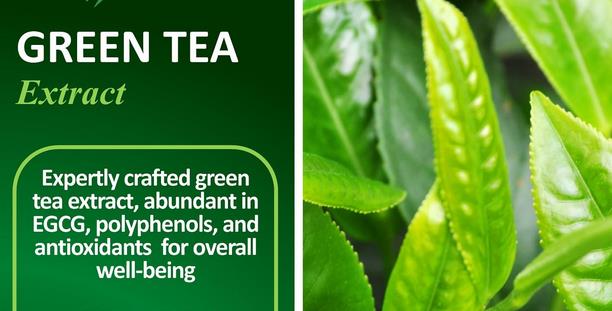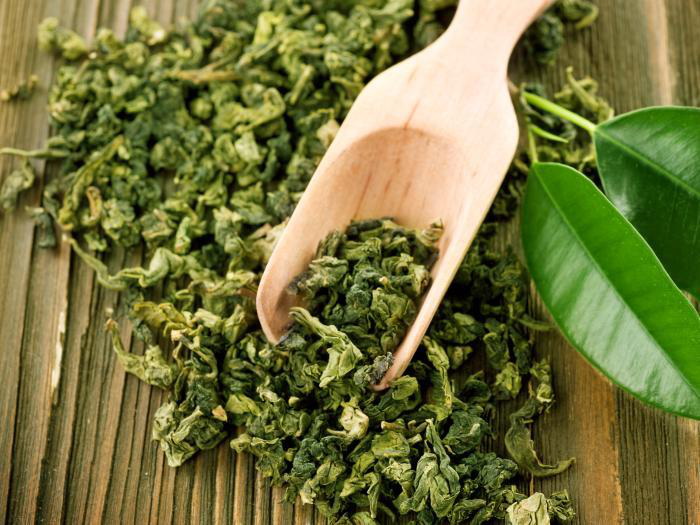Content Menu
● Understanding Green Tea Extract
● Benefits of Green Tea Extract
● Determining a Safe Dosage
>> Recommended Dosage Range
>> EGCG Content
>> Caffeine Consideration
● Potential Risks and Side Effects
● Guidelines for Safe Consumption
● Special Considerations
>> Pregnancy and Breastfeeding
>> Children and Adolescents
● How to Incorporate Green Tea Extract Safely
● Alternatives to Green Tea Extract
● Research and Studies
● Monitoring and Adjusting Intake
● Green Tea Extract in Weight Loss Products
● The Future of Green Tea Extract Research
● Conclusion
● Frequently Asked Questions
>> 1. Can I take green tea extract every day?
>> 2. Are there any drug interactions with green tea extract?
>> 3. How long does it take to see benefits from green tea extract?
>> 4. Is green tea extract better than drinking green tea?
>> 5. Can green tea extract cause liver damage?
● Citations:
Green tea extract has gained popularity as a dietary supplement due to its potential health benefits. However, determining a safe dosage is crucial to avoid potential side effects. This comprehensive article will explore the safe amounts of green tea extract, its benefits, potential risks, and guidelines for consumption.

Understanding Green Tea Extract
Green tea extract is a concentrated form of green tea, containing high levels of polyphenols, particularly catechins. The most abundant and well-studied catechin in green tea is epigallocatechin gallate (EGCG), which is believed to be responsible for many of its health benefits.
Benefits of Green Tea Extract
Green tea extract offers numerous potential health benefits, including:
1. Antioxidant properties
2. Weight loss support
3. Improved brain function
4. Heart health promotion
5. Blood sugar regulation
6. Liver protection
7. Enhanced exercise performance and recovery
Determining a Safe Dosage
The safe amount of green tea extract can vary depending on several factors, including an individual's health status, age, and other medications they may be taking. However, based on available research and expert recommendations, we can provide some general guidelines.
Recommended Dosage Range
Most studies suggest that a safe and effective dosage of green tea extract ranges from 250-500 mg per day. This typically contains about 50-60% EGCG. It's important to note that these doses are significantly higher than what you would get from drinking green tea.
EGCG Content
When considering green tea extract supplements, pay attention to the EGCG content. A safe intake level of EGCG is generally considered to be up to 338 mg per day for adults. However, some studies have used higher doses without significant adverse effects.
Caffeine Consideration
Green tea extract may contain caffeine unless it's specifically decaffeinated. Be mindful of your total caffeine intake from all sources, as the FDA recommends limiting caffeine consumption to no more than 400 mg per day for healthy adults.

Potential Risks and Side Effects
While green tea extract is generally considered safe when taken in appropriate doses, it's not without potential risks:
1. Liver damage: High doses of green tea extract have been associated with rare cases of liver injury.
2. Caffeine-related side effects: Jitters, anxiety, sleep disturbances, and increased heart rate.
3. Iron absorption interference: Green tea may reduce iron absorption from food.
4. Medication interactions: Green tea extract may interact with certain medications, including blood thinners and some antibiotics.
Guidelines for Safe Consumption
To ensure safe consumption of green tea extract, consider the following guidelines:
1. Start with a low dose and gradually increase if needed.
2. Take green tea extract with food to minimize the risk of liver problems.
3. Avoid taking green tea extract on an empty stomach.
4. Do not exceed the recommended dosage on the product label.
5. Choose a reputable brand that has been third-party tested for purity and potency.
6. If you have any pre-existing health conditions, especially liver issues, consult with a healthcare professional before taking green tea extract.
Special Considerations
Pregnancy and Breastfeeding
Pregnant and breastfeeding women should exercise caution when consuming green tea extract. While moderate consumption of green tea as a beverage is generally considered safe, the concentrated nature of green tea extract may pose risks. It's best to consult with a healthcare provider before using green tea extract supplements during pregnancy or while breastfeeding.
Children and Adolescents
There is limited research on the safety of green tea extract in children and adolescents. It's generally recommended to avoid giving green tea extract supplements to this age group unless under the guidance of a healthcare professional.
How to Incorporate Green Tea Extract Safely
If you're considering adding green tea extract to your routine, here are some tips for safe incorporation:
1. Choose a high-quality supplement: Look for products that have been third-party tested and certified for purity and potency.
2. Follow dosage instructions: Adhere to the recommended dosage on the product label or as advised by your healthcare provider.
3. Monitor your reaction: Pay attention to how your body responds to the supplement. If you experience any adverse effects, discontinue use and consult a healthcare professional.
4. Combine with a healthy lifestyle: Green tea extract is not a magic bullet. For optimal benefits, combine it with a balanced diet and regular exercise.
5. Be consistent: The benefits of green tea extract are often seen with regular, long-term use. Be patient and consistent in your supplementation.
Alternatives to Green Tea Extract
If you're hesitant about taking green tea extract supplements, consider these alternatives:
1. Drink green tea: Consuming 3-5 cups of green tea per day can provide many of the same benefits as green tea extract, albeit at lower concentrations.
2. Other antioxidant-rich foods: Incorporate foods high in antioxidants like berries, dark chocolate, and leafy greens into your diet.
3. Other herbal teas: Herbal teas like chamomile, peppermint, or rooibos can offer various health benefits without the concerns associated with concentrated extracts.

Research and Studies
Numerous studies have investigated the safety and efficacy of green tea extract. Here are some key findings:
1. A systematic review published in the journal "Regulatory Toxicology and Pharmacology" concluded that a safe intake level of 338 mg EGCG/day for adults could be derived from toxicological and human safety data for tea preparations ingested as a solid bolus dose.
2. A study in the "European Journal of Nutrition" found that green tea extract supplementation (containing 890 mg of polyphenols) for 12 weeks was well-tolerated and improved several cardiovascular risk factors in overweight or obese women.
3. Research published in "The American Journal of Clinical Nutrition" demonstrated that green tea extract intake (containing 583 mg of catechins) for 12 weeks reduced body fat in moderately overweight Chinese subjects.
Monitoring and Adjusting Intake
When taking green tea extract, it's important to monitor your body's response and adjust your intake if necessary. Here are some signs that may indicate you need to reduce your dosage or stop taking the supplement:
1. Stomach upset or nausea
2. Headaches
3. Irritability or anxiety
4. Sleep disturbances
5. Irregular heartbeat
6. Signs of liver problems (such as yellowing of the skin or eyes, dark urine, or abdominal pain)
If you experience any of these symptoms, discontinue use and consult with a healthcare professional.
Green Tea Extract in Weight Loss Products
Green tea extract is a common ingredient in many weight loss supplements. While it may contribute to modest weight loss, it's important to approach these products with caution:
1. Avoid products that make exaggerated claims about rapid weight loss.
2. Be wary of supplements that contain multiple stimulants in addition to green tea extract.
3. Remember that sustainable weight loss comes from a balanced diet and regular exercise, not from supplements alone.
The Future of Green Tea Extract Research
As interest in natural health supplements continues to grow, research into green tea extract is likely to expand. Future studies may focus on:
1. Long-term safety and efficacy of green tea extract supplementation
2. Potential applications in disease prevention and treatment
3. Interactions between green tea extract and various medications
4. Optimal dosing strategies for different health outcomes
Stay informed about new research findings to make the most informed decisions about your green tea extract consumption.
Conclusion
Green tea extract can be a beneficial supplement when used appropriately. A safe amount typically ranges from 250-500 mg per day, with EGCG content not exceeding 338 mg. However, individual factors such as health status, age, and concurrent medications can influence what constitutes a safe dose for each person.
Always start with a lower dose, take the supplement with food, and be attentive to any side effects. If you have any pre-existing health conditions or are taking medications, consult with a healthcare professional before adding green tea extract to your regimen.
Remember, while green tea extract offers potential health benefits, it's not a substitute for a balanced diet and healthy lifestyle. Use it as part of a comprehensive approach to health and wellness, and always prioritize safety in your supplement choices.

Frequently Asked Questions
1. Can I take green tea extract every day?
Yes, green tea extract can be taken daily when used as directed. However, it's important to stick to the recommended dosage and not exceed it. If you're considering long-term daily use, it's a good idea to consult with a healthcare provider to ensure it's appropriate for your individual health needs.
2. Are there any drug interactions with green tea extract?
Green tea extract can interact with several medications. It may decrease the effectiveness of certain antibiotics and increase the effects of blood thinners like warfarin. It can also interact with medications metabolized by the liver. Always inform your healthcare provider about all supplements you're taking, including green tea extract.
3. How long does it take to see benefits from green tea extract?
The time frame for seeing benefits can vary depending on the specific health outcome you're looking for and individual factors. Some studies have shown effects in as little as a few weeks, while others have lasted several months. Consistency is key - regular, long-term use is typically necessary to see significant benefits.
4. Is green tea extract better than drinking green tea?
Green tea extract provides a more concentrated dose of catechins than drinking green tea, which can be beneficial for certain health outcomes. However, drinking green tea provides additional benefits like hydration and a relaxing ritual. Both can be part of a healthy lifestyle, and the choice between them depends on your personal preferences and health goals.
5. Can green tea extract cause liver damage?
While rare, there have been reports of liver damage associated with green tea extract, particularly when taken in high doses or on an empty stomach. To minimize risk, always take green tea extract with food, don't exceed recommended doses, and avoid it if you have liver problems. If you experience symptoms like abdominal pain, dark urine, or yellowing of the skin or eyes, stop taking the supplement and seek medical attention immediately.
Citations:
[1] https://www.webmd.com/vitamins/ai/ingredientmono-960/green-tea
[2] https://www.drugs.com/npp/green-tea.html
[3] https://www.peacehealth.org/medical-topics/id/hn-2102007
[4] https://www.youtube.com/watch?v=kmlcjBJ05Sk
[5] https://www.freepik.com/free-photos-vectors/green-tea-extract
[6] https://www.healthline.com/nutrition/10-benefits-of-green-tea-extract
[7] https://pubmed.ncbi.nlm.nih.gov/29580974/
[8] https://www.youtube.com/watch?v=eMuE16vLV_s
[9] https://www.nccih.nih.gov/health/green-tea
[10] https://examine.com/supplements/green-tea-extract/































